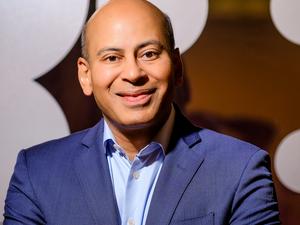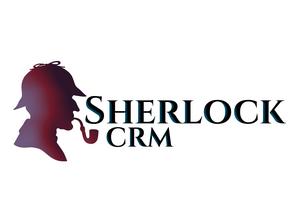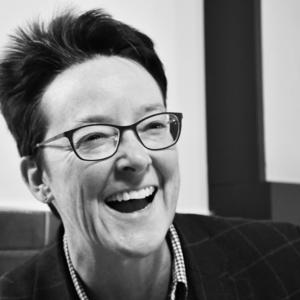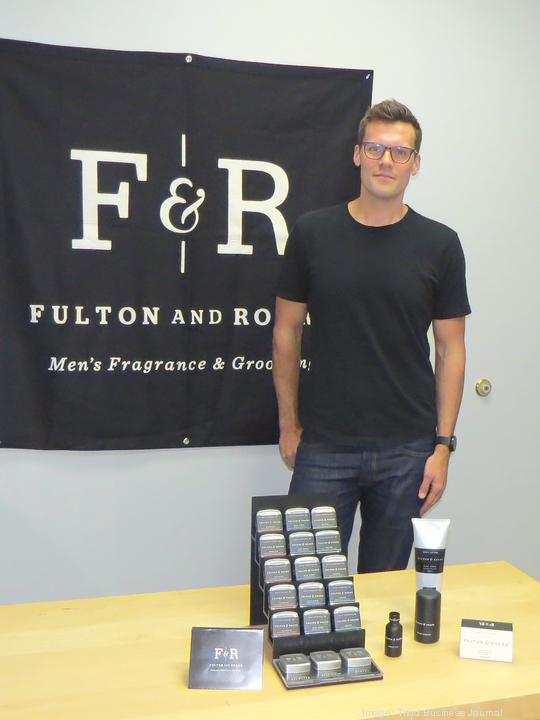
The year was 2014 and Wake Forest University MBA graduates Kevin Keller and Allen Shafer were facing the first significant hurdle of their entrepreneurial lives. Otherwise gainfully employed, the company they hatched as students had launched just a year earlier and, thanks to some favorable national media exposure, was about to scale up whether they were ready or not.
They adapted quickly, and success soon followed for Fulton & Roark, which makes solid fragrances and other men’s grooming products.
Last year, Fulton & Roark ranked No. 2,025 on the Inc. 5000 list of the fastest-growing companies in the country.
While in college, Keller and Shafer spent much of their free time literally boiling fragrance formulations on a basement stove and experimenting with various waxes to create their solid cologne. On the business side, they used any opportunity to co-opt every class and every professor into helping them think through their startup.
The company now has a staff of seven, including the founders. Keller anchors Fulton & Roark’s one-man office off Stratford Road in Winston-Salem; Shafer returned to his native Dallas in 2016. Fulton & Roark is essentially a remote business that contracts its manufacturing elsewhere. And thanks to its retail conversion from a handful of outlets to an emphasis on e-commerce, it has grown from a handful of outlets in Winston-Salem to a global clientele.
“We knew it was a weird thing to do in business school,” Keller said. “Everyone else was talking about FinTech and investments in billion-dollar ideas while we had an idea that was part passion and we thought made a lot of business sense. We thought if everything went splendidly this could be tens of millions of dollars if somehow we became the biggest thing going. We thought we had a real shot at it.”
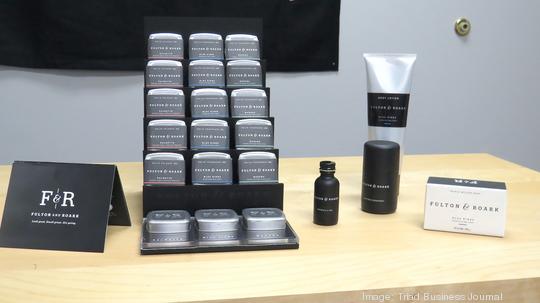
A real shot, they believed, because it came at a time when upscale grooming products were gaining traction among men. The company launched in 2013 with just three fragrances and now features a permanent collection of nine. Fulton & Roark founds its first retail home at Clubhouse Salon for Men in Winston-Salem, eventually finding its way into a handful of other local stores.
Trial and error has seen other products come and go over the years, and Fulton & Roark now offers deodorants, bar soaps, beard oil and body wash.
Leveraging media experience
With a background as a journalist in public radio, Keller leveraged his media acumen to solicit press by sending samples to publications whose content is consumed by Fulton & Roark’s target demographic.
“I've read a million press releases, and I've ignored, almost a million press releases, so I thought I'll just reverse-engineer what would be a good pitch that I actually would follow up on as a reporter,” Keller said. “I used to write these beautiful seven-paragraph pieces of art, and quickly realized that it was a better way, something like three sentences to say, ‘Can I send you something to try out?’ It just blew up, and we started getting press very early on."
The game plan in place, Fulton & Roark was soon featured in Details Magazine, Uncrate and Southern Living, all in February 2014. That was followed by GQ, Esquire and Men’s Health, all within a little more than a year. In June 2016, the company made a second appearance in GQ, when its shave cream was named a winner of the magazine’s grooming award.
“It was the second time we were being featured in GQ in an online article that the reporter said, ‘I need somewhere to send people.’ I told him we don’t have e-commerce and he said, ‘well get e-commerce because you’re going to run out of runway with this coverage.’’’
With a sales mix of 80% e-commerce and 20% wholesale, the company’s largest single retail partner is Billy Reid, whom Keller called arguably the greatest American designer alive. Billy Reid has 15 stores.
In all Fulton & Roark is in approximately 400 stores across the country, but its primary marketing method is social media advertising. The company is targeting more outlets, including golf courses and travel boutiques, including hotels and airport stores.
“Golf is is an area we like. We’ve been in Pinehurst and Pebble Beach, and some other great golf courses throughout the U.S., but we haven't blown that out so we know there are a lot of opportunities there,” Keller said. “We're also pursuing a major department store as a partner, so those are those are some of the options we're thinking about."
Bootstraps and shoestrings
Keller and Shaffer started Fulton & Roark with $11,000 and have operated on a bootstrap model since the beginning, forgoing the venture capital route.
“So many of our competitors have been at the mercy of venture capital really early on, so they’ve had the position that we’re going to just lose money, lose money and lose money, and then one day everything's going to be great, we're going to hit critical mass and explode. That’s the VC model,” Keller said. “We’ve never had to do that and so and we've never been forced to do the 500-times growth insanity that so many of these direct-to-consumer companies have to do.
“There might be a moment where we find the right VC partner, but we've never had to bend over backwards to raise money," Keller said.
Under the current model, Keller projects eventually reaching $20 million in annual revenue, at which time it may make sense to sell to a company with the scaling ability to take the brand farther. In the meantime, everything has a price.
“We're happy right now, we're profitable, things are going well," he said. “If we found really good partners who came to us with a deal that that made a lot of sense for us, I think we'd be excited about that. I think if the if the right strategic buyer came and said they want to take control of this, there's a price for everything, so I think we'd be open to that, too.
“On the other hand, if we want to just keep doing this the way with consistent solid growth year over year, we're profitable and we're able to do it the way we're doing it, that a good scenario, too.”
About that name
When they started the company, the founders sought an authentic identity that would sound like a brand that has been around for 100 years. First they considered their own last names.
Instead, they decided the appropriate name should really put on the dog. Their own dogs, to be exact.
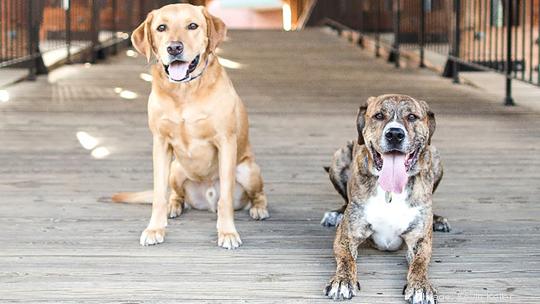
“We decided Keller & Shaffer sounded like a bad law firm,” Keller said. “I jokingly said our dogs Fulton and Roark have better names for this than we do.”
Keller, who grew up in Atlanta, named his dog after Fulton County. Dallas native Shaffer named his after Roark Cove Road, where he grew up bicycling.

